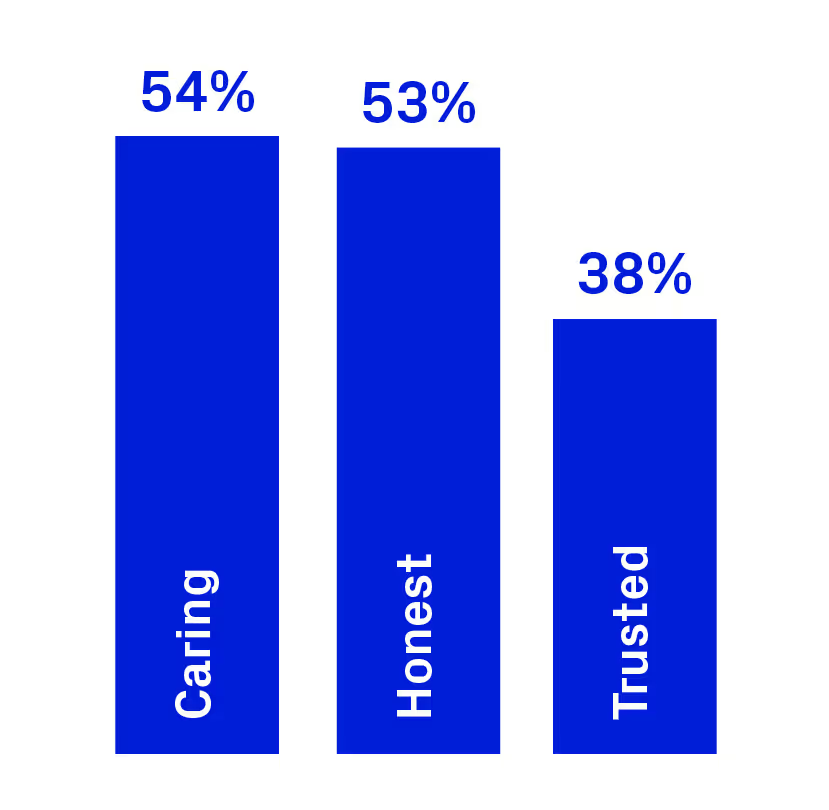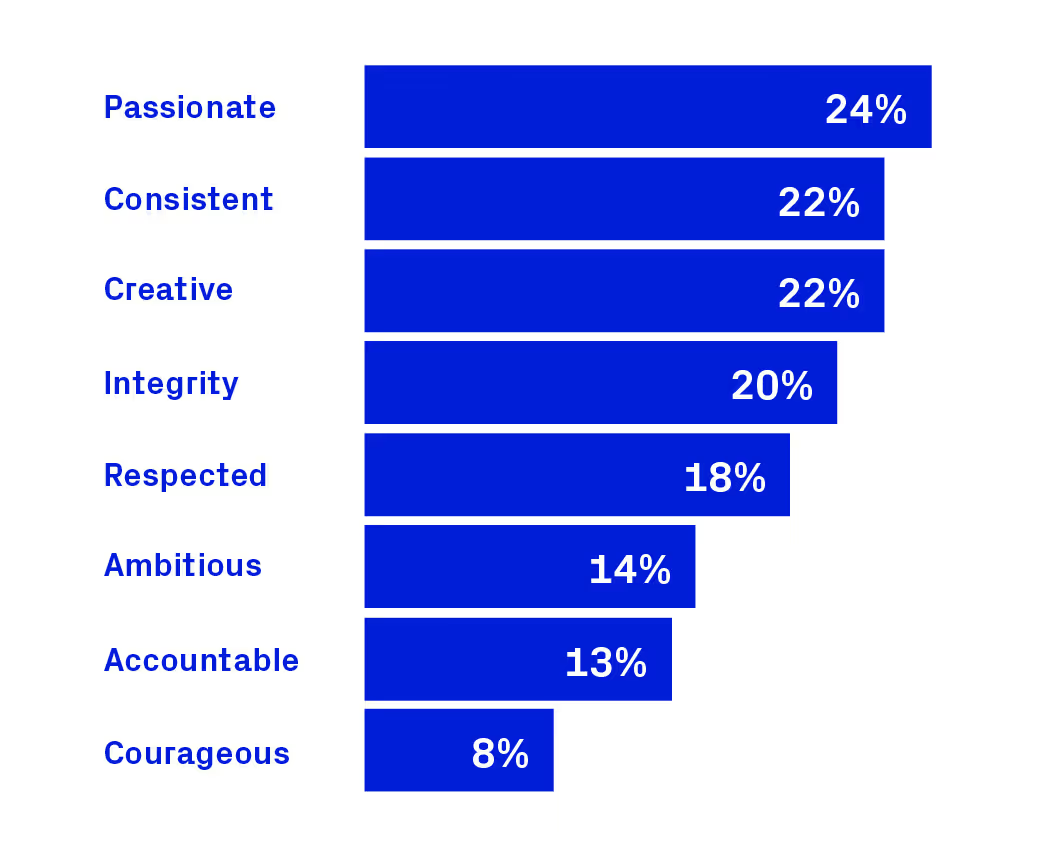Menu

Brands that openly share their values are more likely to connect with people on a deeper level, fostering brand affinity that goes beyond rational considerations.
But not all values are created equal. In fact, choosing the right values can make a major difference.
Just like we tend to choose friends based on values they identify with, if people perceive your brand to hold shared values to them, they are more likely to be open to what you have to say and feel an affinity that supersedes rational considerations. To use Jeremy Bullmore’s words, they are more likely to “quite like you a bit more than they like others”.
As part of our research, we collected a list of the top ten typical company values. We then put this list in front of people and asked them to pick the three that they would choose to describe themselves.
There were three clear and universal ‘winners’. They were: care, honesty and trust.

Which three of these words would you use to describe yourself?
Care, honesty and trust feature in many companies’ values, and they were the top three values people chose to describe themselves. However, while these were the clear ‘winners’ across the board, we did see a few differences depending on the person’s MindSet.
(MindSets are a population segmentation model developed by TRA based on surveys of over 300,000 New Zealanders and 10,000 Australians. Find out about TRA’s MindSets model.)
While care, or being caring, was an important value across all the MindSets, those with a traditional MindSet placed a slightly higher value on honesty (Caring 54%, Honest 57%). Conversely, those people who have a more progressive MindSet are significantly less likely to rate honesty so highly (Caring 54%, Honest 46%).
Trust consistently came in at third across all groups, with around 4 in 10 of all New Zealanders wanting to be known as trustworthy or trusted.
Where it gets interesting across subgroups is in the second tier of values. One example is the values of passionate and creative - values that are often used by companies.
Progressive and Aspirational MindSets, and those with unique tastes, identified their personal values as passionate and creative more often than those with a Traditional MindSet or those who are more content with their place in life. Which of these groups are your customers?

If the people you are trying to reach are people with Traditional MindSets, it pays to know that beyond the top three values of care, honesty and trust, these people are more likely to also value respect and consistency.
Ambitious is an interesting value. The table shows that most New Zealanders don’t rank being ambitious highly, however there are large differences across the MindSets. Progressive MindSets and, of course, not surprisingly those with an aspirational MindSet, over-index on this value with roughly 20% versus the national average of 14%.
A company’s values have to be authentic and embodied - they have to live them, not just say them.
When identifying your company values, take care not to lose sight of the values of your audience. There are multiple audiences for values: internal (employees) and external (people in the market for your brand). Both will be biased towards particular MindSets – be aware of both. Input from the values of your audience can sharpen the relevance of your values and make you a more human-centric organisation.
What are your company values? Do they align with those of your customers and employees? And how can you ensure that your values are not just words on a page, but truly embodied in your actions? Let these questions spark your thinking and guide you towards building a brand that resonates on a deeper level.